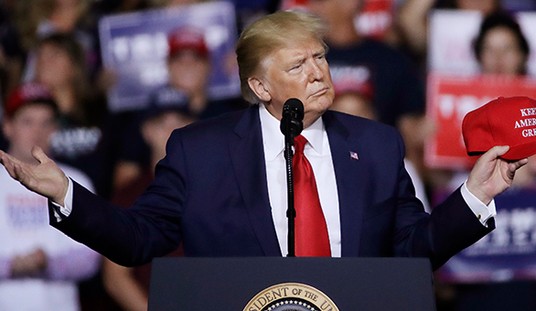Blockchain technology is the next generation of technical evolution born from American innovation – much like the first radios, computers, or the once quaintly named world wide web. The technology likely won’t replace the U.S. dollar but it will transfer a lot more power over financial transactions into the hands of individuals – which was the whole idea when it was invented many years ago after the financial crisis.
Naturally, the big banks who finance the Democratic Party don’t like that, and the point-man in their war on crypto is Securities and Exchange Commission Chairperson Gary Gensler.
Both tensions and blood pressure are on the rise as the crypto industry anticipates summary judgment in the SEC v. Ripple Labs lawsuit. There have been reports that a ruling in the high-stakes case could be settled any day.
The SEC, in what’s become a pattern, slapped a lawsuit on the payments software company back in 2020, claiming they had been selling the XRP token to crypto exchanges without registering them as securities. Ripple counters that the XRP assets are commodities, and the XRP buyers are not investors in their company. The company’s software product uses XRP as a bridge currency for instantly settling cross-border payments without fees.
The legal dispute between the agency and Ripple is a symptom of a bogus vendetta the SEC has against the crypto industry. The initial blow landed when Jay Clayton, former SEC Chairman, filed the lawsuit against Ripple. Now the current Chairman Gary Gensler continues to stomp all over the emerging industry in Clayton’s footsteps.
Though crypto technology emerged in 2009, the SEC refused to develop a clear set of guidelines or rules for businesses in this sphere to follow. And just as the industry began to gain traction, the SEC showed its preference for regulation by enforcement because a lack of rules lets a regulator improvise, and maximize its power.
Recommended
In 2021 alone, the SEC brought a total of 20 enforcement actions to bully the crypto industry, bleeding them dry with fines and settlements and creating a fog in which no one in industry can see a clear way forward.
The SEC is not acting with any foresight or practicality. Other crypto companies like Coinbase have asked for clarity on what makes a digital asset a security, but they got subpoenas and enforcement warnings in return. But the real question is why? Some individuals at the agency and in the public have developed a narrative that this new technology is outlandish or dangerous – stirring up a sense of fear and uncertainty about the industry.
All over the world, countries have acknowledged the value in what crypto technology can offer, including China. While America’s competitors get a leg up in this global tech race, the SEC’s actions are stifling American innovators. For example, no other country in the world considers XRP to be a security, but the SEC’s outlier opinion is targeting an American company like Ripple with a lawsuit that has cost the company $200 million to date. No wonder Ripple’s CEO has started talking about moving abroad, like many of his American peers.
Gensler is adamant that his assault on crypto is protecting investors. But the reality feels more like a child’s game – someone making up the rules as they go and changing them on a whim. No Americans are angrier at Gensler than crypto token holders themselves, the very people he claims to be protecting.
Though the SEC started this war, they’ve made too many enemies. Unlike some of the other companies the SEC has bullied into settlement, Ripple is not backing down. Most of the American crypto industry is now backing the company and stepping up their political organizing ahead of the 2024 election.
Depending on the judge’s decision, the big questions around XRP and the wider meaning for crypto could go in front of a jury. There’s no question that the appellate courts will push back against the SEC’s behavior. If the Ripple case ends up in the Supreme Court, the conservative majority might see it as an opportunity to put an end to regulation by enforcement as a practice and set new rules for digital assets.

























Join the conversation as a VIP Member